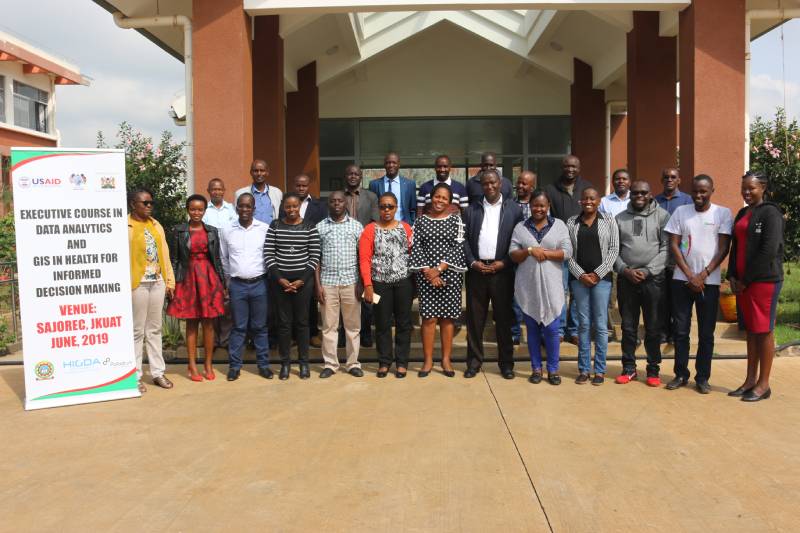×
The Standard e-Paper
Smart Minds Choose Us

Participants of the executive course training in Data Analytics and GIS in health for informed decision making. [Courtesy]
The limited use of data and Geographic Information System (GIS) in the provision of health care has been identified as one of the bottlenecks that continue to hinder programme management, policy development and decision making in the health sector.